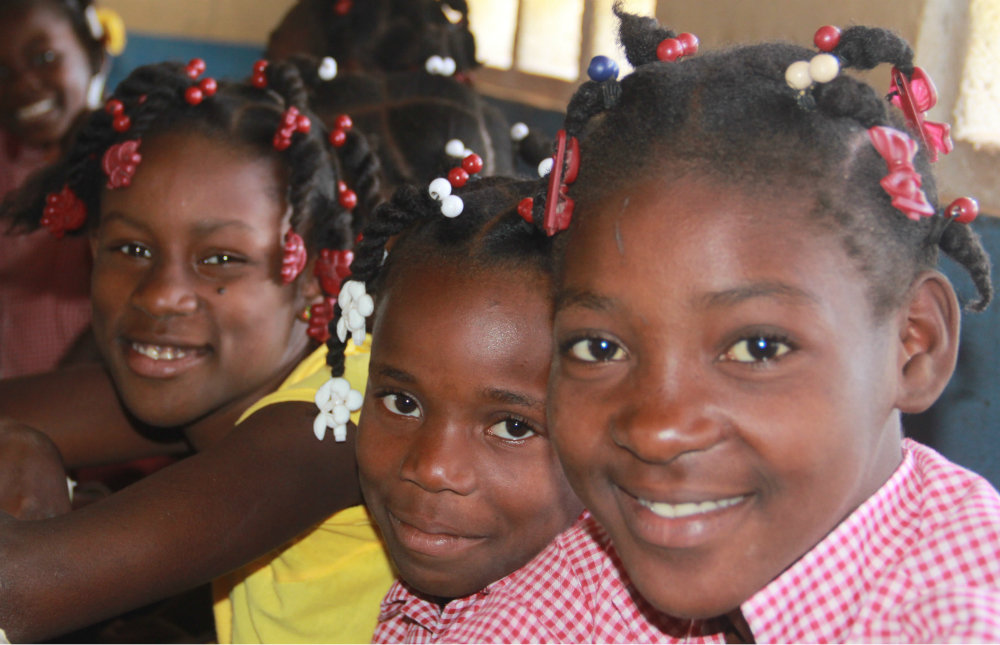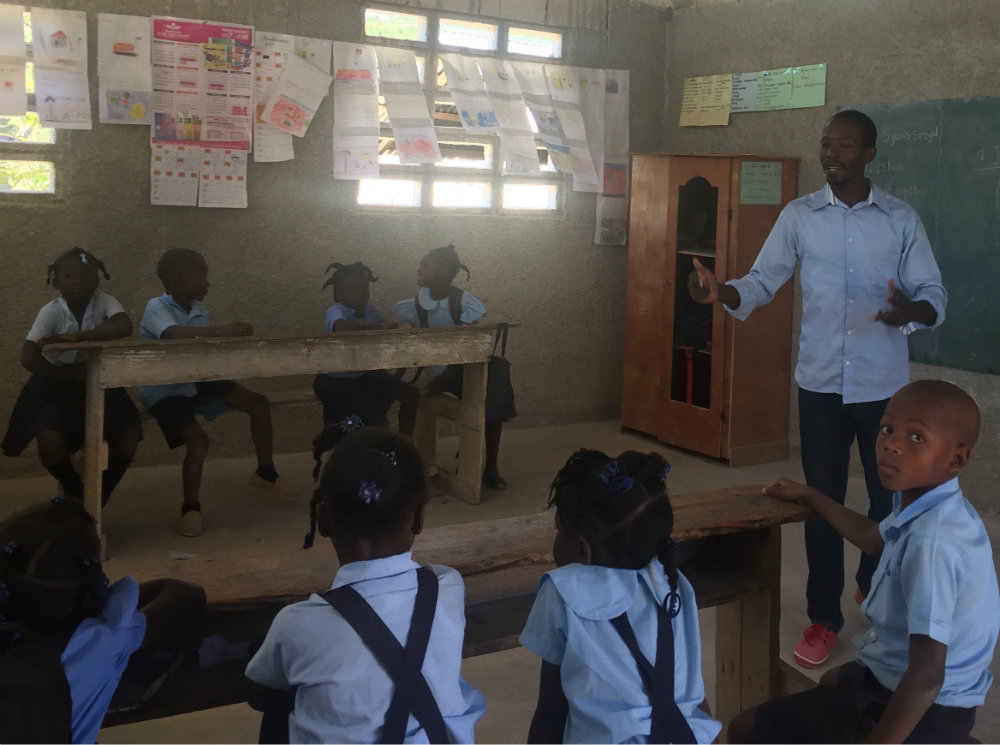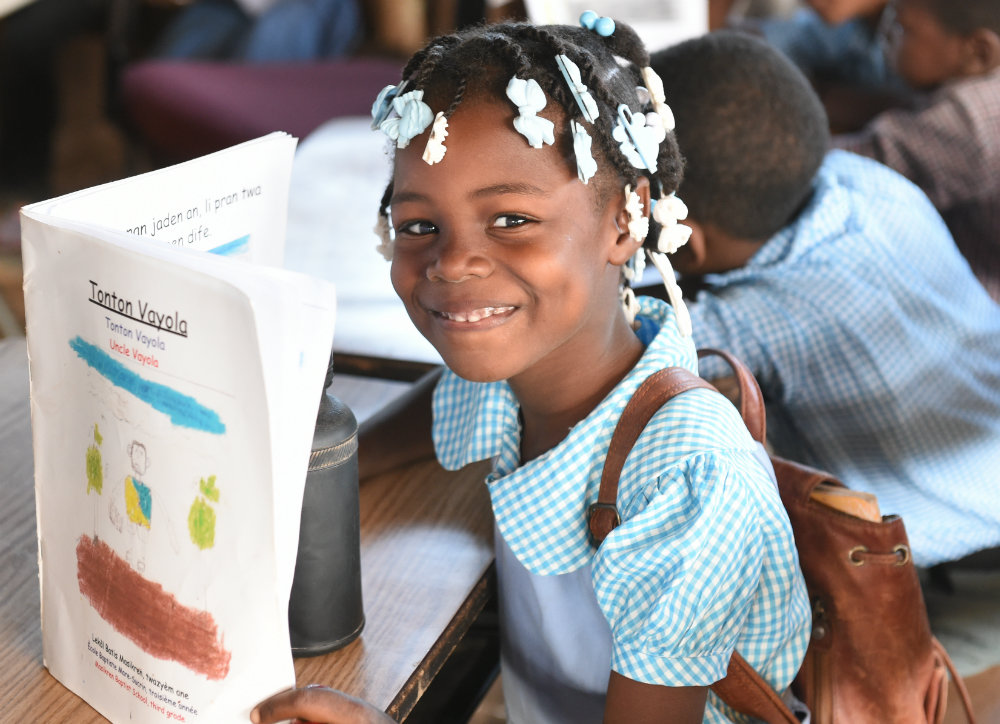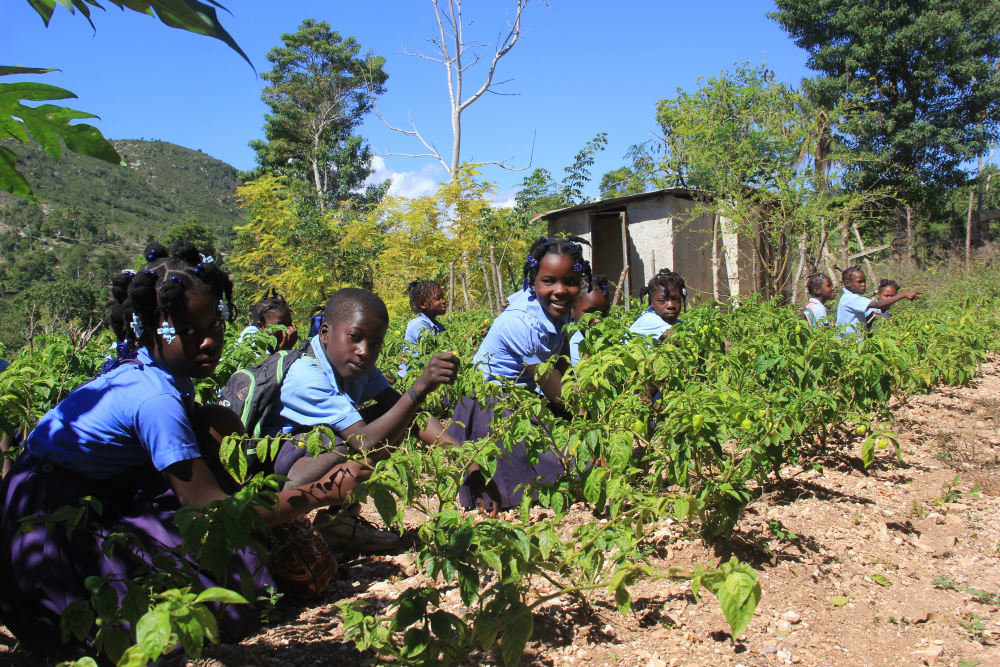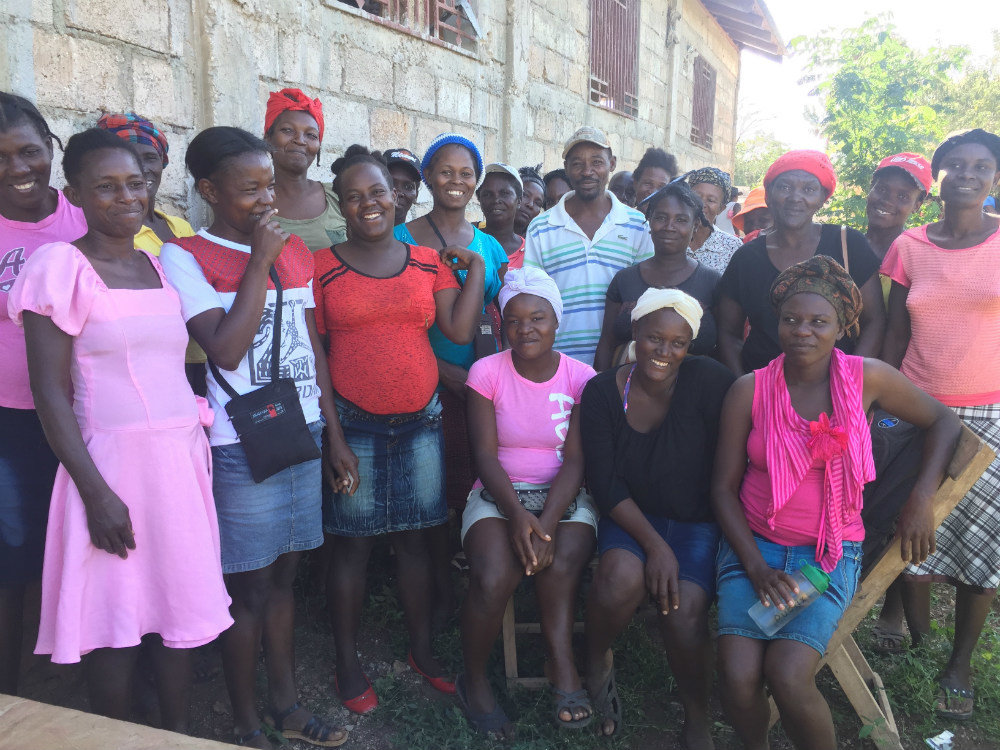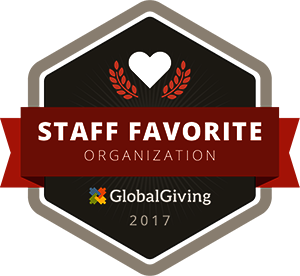By Brian Stevens | Donor Relations Director
Thank You for Your Generous Support
Thank you for your generous support for Beyond Borders’ Schools Not Slavery Initiative. We are so grateful for all that you are making possible for vulnerable children and families in Haiti.
I’m writing to you from Lagonav Island, where for three weeks I’ve travelled around to schools and communities to see firsthand what’s happening thanks to the generosity of supporters like you.
I’ve met with school directors, teachers, child rights activists, adult survivors of child slavery, adult literacy teachers, women and men organizing to prevent violence against women and girls, and families that are working to lift themselves out of poverty.
Each is playing a unique role, but all share the same vision for Haiti: a nation free of child slavery and violence against women and girls; a nation in which every child goes to a good school; a nation no longer dependent on handouts, a nation where dignified work feeds the souls and bodies of every citizen.
Your generosity is what makes their work and their pursuit of this shared vision possible.
I wanted to share with you a few of the photos and stories of those I met, so that you could see for yourself what you are making possible here.
Thank you again for your generous support for Schools Not Slavery!
Nonviolent, Native Language, Participatory Teacher Training
Nine-year-old Stephanie, a student at St. Barthelemy in the village of Nan Mango, told me, “My favorite subject is social science and when I grow up I want to be a doctor. I love my school and my teacher.”
Thanks to Schools Not Slavery supporters like you, 2,392 students like Stephanie at 25 schools are taught using nonviolent, participatory methods rooted in rural life - like school gardens - that encourage creativity, democracy, leadership, and service.
Authoritarian classroom management enforced via corporal punishment, shaming and humiliation is often the norm in Haitian classrooms. Your Schools Not Slavery gift supports a nonviolent classroom management approach that aims to teach students leadership and democracy by empowering them to develop class rules and manage their own behavior.
Teachers hold students accountable to the standards that they themselves established. The approach gives students the opportunity to practice democracy rather than simply be responsive to authoritarian rule.
Stephanie’s teacher, Marie-Love, 22, said that since taking part in Beyond Borders’ sponsored teacher training, she and her fellow teachers at St. Bart’s have embraced a nonviolent, participatory approach to classroom management. “My classroom is organized around principles now - not the paddle. The students listen better and there are fewer disruptions. Children are more comfortable in the classroom now.”
Your Schools Not Slavery gift is also supporting an approach to learning in which students are taught in Haitian Creole - the language they speak at home - instead of French, a language students rarely encounter in their daily lives. Once students are literate in their native language, schools introduce French as a second language.
Rigo, 48, is the director at St. Barthelemy School. He told us that the trainings that teachers like Marie-Love have received thanks to Schools Not Slavery have transformed the quality of education at his school. “Teachers are better prepared. Their lessons are better prepared, they teach better in the classroom. Teachers don’t hit students anymore.”
His counterpart Maurice, 43, at Miks Emayis School agrees. “Our teachers weren’t well trained. Since we became part of the Beyond Borders school network, our students and teachers have much more capacity and we’ve improved our performance. As the school has improved, more parents are sending their children here. We have 111 children enrolled this year. In years past, before we joined the school network, we would struggle to enroll even 50 students.”
Mother Tongue Books Encourage Intellectual Curiosity & Critical Thinking
Romelin, 34, is a second grade teacher at the Miks Emayis School in Gransous. Your Schools Not Slavery gift helped to train 100 teachers like Romelin.
Your support is also helping teachers like Romelin to introduce the Mother Tongue Book Program in their classrooms.
This participatory-based approach is meant to foster intellectual curiosity and critical thinking skills among students. Rather than simply copying, memorizing and parroting back lessons in French, students write their own stories in Haitian Creole about their own lives and share them with each other.
“This is a beautiful initiative,” Romelin said. “They love writing their own books. Their spirits are more open. Even their handwriting is better.”
School Gardens Integrate Rural Life into Classrooms
At the Wesleyan School in Nan Mango, I visited with students as they worked in the school garden. Thanks to supporters like you, Wesleyan and all 25 schools in Beyond Borders’ Schools Not Slavery network are rethinking the traditional approach to education in Haiti that has largely shunned any classroom connection with rural life and agriculture.
By integrating agriculture into the classroom curriculum, we aim to teach skills and develop habits that students will need to thrive and build better lives for themselves where they live, without having to migrate to the city.
School gardens teach students agricultural science and mathematics, including techniques to improve yield and mitigate drought driven by climate change. Vegetables grown are used in daily school meal programs, with excess food sold in the market, helping students learn to manage money too.
Adult Survivors of Child Slavery Organizing to Protect Children
In the communities of Tikoma and Gransous, I met with the local chapters of Beyond Borders’ Adult Survivors of Child Slavery Network. These courageous survivors have received training in how to help families keep their children at home instead of sending them away, which puts children at great risk of becoming enslaved.
The survivors’ chapters work closely with the local Beyond Borders’ sponsored-Child Protection Brigades in their community too. They are dedicated to ensuring that no child ever suffers what they did.
Yvrose, 48, is a mother of two girls and three boys, and a member of the Tikoma chapter. “My parents sent me to live with my uncle when I was 10. They had many children that they wanted me to take care of. They beat me and yanked my ear when they were mad at me. I ran away at age 13. I’m doing this because I wanted to share my story so that no family in Tikoma sends their child away.”
Thank You Again
Thank you again for your generosity, your care, your concern, and your commitment to vulnerable children and families in rural Haiti. We are deeply grateful for your support for the Schools Not Slavery initiative. If you have any questions about what you read here, please feel free to contact us anytime at (202) 686-2088.
Links:
Project reports on GlobalGiving are posted directly to globalgiving.org by Project Leaders as they are completed, generally every 3-4 months. To protect the integrity of these documents, GlobalGiving does not alter them; therefore you may find some language or formatting issues.
If you donate to this project or have donated to this project, you can receive an email when this project posts a report. You can also subscribe for reports without donating.
Support this important cause by creating a personalized fundraising page.
Start a Fundraiser